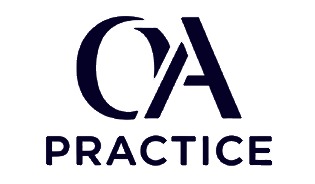D444 Adult Health I - Set 3 - Part 1
Test your knowledge of technical writing concepts with these practice questions. Each question includes detailed explanations to help you understand the correct answers.
Question 1: A patient with tuberculosis asks why three morning sputum samples are needed. What is the scientific rationale for collecting specimens on consecutive days?
Question 2: Your patient with closed-angle glaucoma experiences sudden severe headache with eye pain. Which associated symptom confirms this is an ocular emergency?
Question 3: A nurse notices a pneumonia patient becoming increasingly restless despite appropriate antibiotic therapy. This early sign most likely indicates which complication?
Question 4: Which skin finding helps differentiate basal cell carcinoma from squamous cell carcinoma during assessment of suspicious lesions?
Question 5: A patient on isoniazid therapy reports forgetting to take vitamin B6 supplements. Which new symptom indicates pyridoxine deficiency has developed?
Question 6: Your patient with COPD shows accessory muscle use and paradoxical breathing. What does paradoxical breathing specifically indicate about their condition?
Question 7: A patient with myasthenia gravis takes pyridostigmine four times daily. Which timing strategy optimizes medication effectiveness for daily activities?
Question 8: Which electrolyte abnormality commonly occurs when treating diabetic ketoacidosis with insulin, requiring careful monitoring?
Question 9: Your patient with cirrhosis develops spontaneous bacterial peritonitis. Which assessment finding specifically suggests this life-threatening complication has occurred?
Question 10: A patient with HIV maintains a CD4 count of three hundred. Which opportunistic infection prophylaxis is most important at this level?
Question 11: Which complication of untreated GERD requires surveillance due to cancer risk in patients with chronic reflux symptoms?
Question 12: Your patient develops Red Man Syndrome during vancomycin infusion. After stopping the infusion, which medication helps manage this reaction?
Question 13: A patient with multiple sclerosis reports worsening symptoms during summer months. Which environmental factor most likely triggers these exacerbations?
Question 14: Which dietary instruction is most important for a patient starting lactulose therapy for hepatic encephalopathy management?
Question 15: Your patient with asthma reports using rescue inhaler eight times yesterday. This frequency indicates which zone requiring specific action?
Question 16: A patient with Crohn's disease develops a draining fistula. Which medication class specifically helps heal fistulas in inflammatory bowel disease?
Question 17: Which finding during chest percussion helps differentiate pleural effusion from consolidation in a patient with abnormal lung sounds?
Question 18: Your patient taking warfarin reports eating large amounts of spinach daily. This dietary change will most likely cause which effect?
Question 19: A patient with emphysema uses pursed-lip breathing. This technique specifically helps prevent which physiological problem during exhalation?
Question 20: Which intervention takes priority when caring for a patient immediately after paracentesis for ascites drainage?
Need Guaranteed Results?
Our exam support service guarantees you'll pass your OA on the first attempt. Pay only after you pass!
Get Exam Support